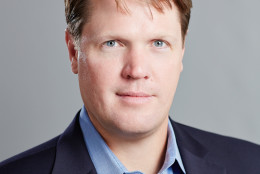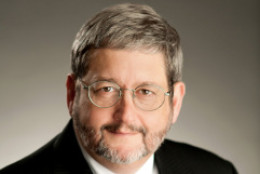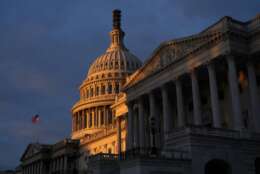Big Data
-
On March 4, the General Services Administration issued a proposed rule that would require contractors to report transactional data from orders placed against GSA’s Federal Supply Schedule (FSS) contract vehicles as well as GSA’s governmentwide acquisition…
October 06, 2015 -
FEMA is re-engineering DisasterAssistance.gov to better meet the needs of customers during and after major events. The project should be done in about two years.
October 05, 2015 -
The Air Force told Congress in a new report that the Distributed Common Ground/Surface System Analysis and Reporting Team (DART) still is doing its assigned job, despite lawmaker concerns.
September 29, 2015 Jim Rinaldi, the CIO at NASA’s Jet Propulsion Lab, said he created an IT petting zoo to test out emerging technology on a small scale to see how it could improve mission results.
September 25, 2015-
The Association of Government Accountants’ third annual survey of federal IGs found auditors say they get support from their agencies, but there’s a growing concern about obtaining all the information they need for investigations.
September 25, 2015 -
The Treasury Department is looking for more feedback on USASpending.gov, an online portal that documents agencies' financial information. It's one step Treasury is taking to help agencies implement the DATA Act.
September 24, 2015 -
The Greater Washington Government Contractor Awards, sponsored by the Fairfax County Chamber of Commerce and the Professional Services Council, honor individuals and businesses in the region's government contracting sector. Brian Karlisch is the CEO of Buchanan Edwards and a finalist for this year's GovCon Contractor of the Year award in the $25-75 million in sales category. He tells In Depth with Francis Rose how investing in technologies such as the cloud are critical for agencies to thrive.
September 23, 2015 -
Pam Dyson, the Securities and Exchange Commission’s CIO, said she is developing a new strategy to better deal with the ever-growing flood of information coming into the agency.
September 18, 2015 -
There is a wealth of government data that could be used to make HR programs far more effective, says former DHS HR executive Jeff Neal.
September 09, 2015 Lawyers at the Homeland Security Department are trying to address privacy concerns now so that DHS can use big data to stop national security threats without running afoul of the law.
September 02, 2015-
Agencies have until the end of 2016 to store all email records electronically — and until 2019 to store all electronic records in their original formats. Most agencies tell the National Archives and Records Administration they'll meet those deadlines. But the line between what's considered a federal record and what's not is getting blurry. Jason R. Baron is of counsel at Drinker Biddle and former director of litigation at NARA. He tells In Depth with Francis Rose about some best practices federal employees can use at a time when Tweets, texts and even Snapchats are often government records.
August 31, 2015 -
Budgeteers are putting their own stake in the federal community. They have at least 148,000 participants across more than 180 agencies. Members of the budget community created their own online collaboration tool to share ideas documents and data with each other. And other federal communities are joining the MAX Federal Community now too. John Kamensky is a senior research fellow for the IBM Center for the Business of Government. He tells In Depth with Francis Rose how the Max Fedeal Community works.
August 27, 2015 -
Three house lawmakers are asking GAO to evaluate the CEDCaP program after the Census Bureau's last IT Census project ran billions over budget.
August 27, 2015 A new IBM Center for The Business of Government report says CIOs lack understanding for innovation metrics, which could grow their operations if used.
August 24, 2015-
While its known as a marketplace for contraband and subculture activity, network defenders have found that movement in the dark web can help predict potential hacks and breaches.
August 21, 2015







